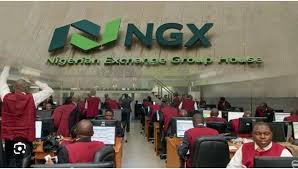Retail investors are flooding Nigeria’s stock market as trading apps lower barriers to entry, with small investors executing ₦516.50 billion worth of trades in July 2025, an 88% jump from June’s ₦274.63 billion.
Data from the Nigerian Exchange (NGX) shows total trading activity hit ₦1.82 trillion ($1.18 billion) in July, more than doubling the ₦778.65 billion ($509.02 million) recorded in June. Domestic investors led with ₦1.67 trillion, a 161% rise, while foreign transactions inched up by 4.76% to ₦145.95 billion.
Although institutional investors accounted for 69.06% of domestic trades, the rapid growth of retail participation is being fuelled by stockbrokers, fintechs, and investment firms rolling out mobile-first brokerage platforms.
Central Securities Clearing System (CSCS) figures show that between January and May, just five brokerage firms captured 70% of new accounts, with Bamboo (via Lambeth Capital) leading with nearly 48,000, followed by Afrinvest (34,473) and Meristem (9,041).
“Traditional minimum investment thresholds of ₦100,000 to ₦500,000 immediately exclude most Nigerians,” said Oluwagbenga Magbagbeola, MD of Sycamore Investment and Asset Management. “Technology now enables fractional and micro-investments, allowing people to start with as little as ₦8,000, which significantly expands the potential investor base.”
The NGX has also taken note. In 2024, it launched NGX Invest, a digital offering platform designed to improve capital flows between investors and the market.
“In Nigeria, 74% of the population is under 24 years. This demographic requires us to digitise our processes and engage them through technology they understand, like apps and digital platforms,” said Emomotimi Agama, DG of the Securities and Exchange Commission (SEC).
Traditional institutions are also shifting. Stanbic IBTC now offers BluNest, Sterling Bank has Doubble, while Meristem operates Meritrade. Fintechs like Cowrywise and Sycamore have also expanded into equities trading.
As inflation and naira volatility push Nigerians toward value-preserving assets, Cowrywise recently urged users to join its equities waitlist, citing the NGX’s 15% historical average return versus bank savings rates of 2–5%. More than 12,000 people signed up in under a week.
Magbagbeola believes competition will increasingly centre on data-driven personalisation.
“The most intense competition will emerge around who can best leverage customer data to deliver personalised investment strategies. This is a sharp departure from the traditional one-size-fits-all fund approach.”
Analysts say just as fintechs disrupted payments and boosted financial inclusion, a similar retail-driven disruption may be underway in Nigeria’s investment sector.
“The winners will be those who combine institutional-grade investment expertise with fintech’s accessibility and user-centricity,” Magbagbeola said.
















